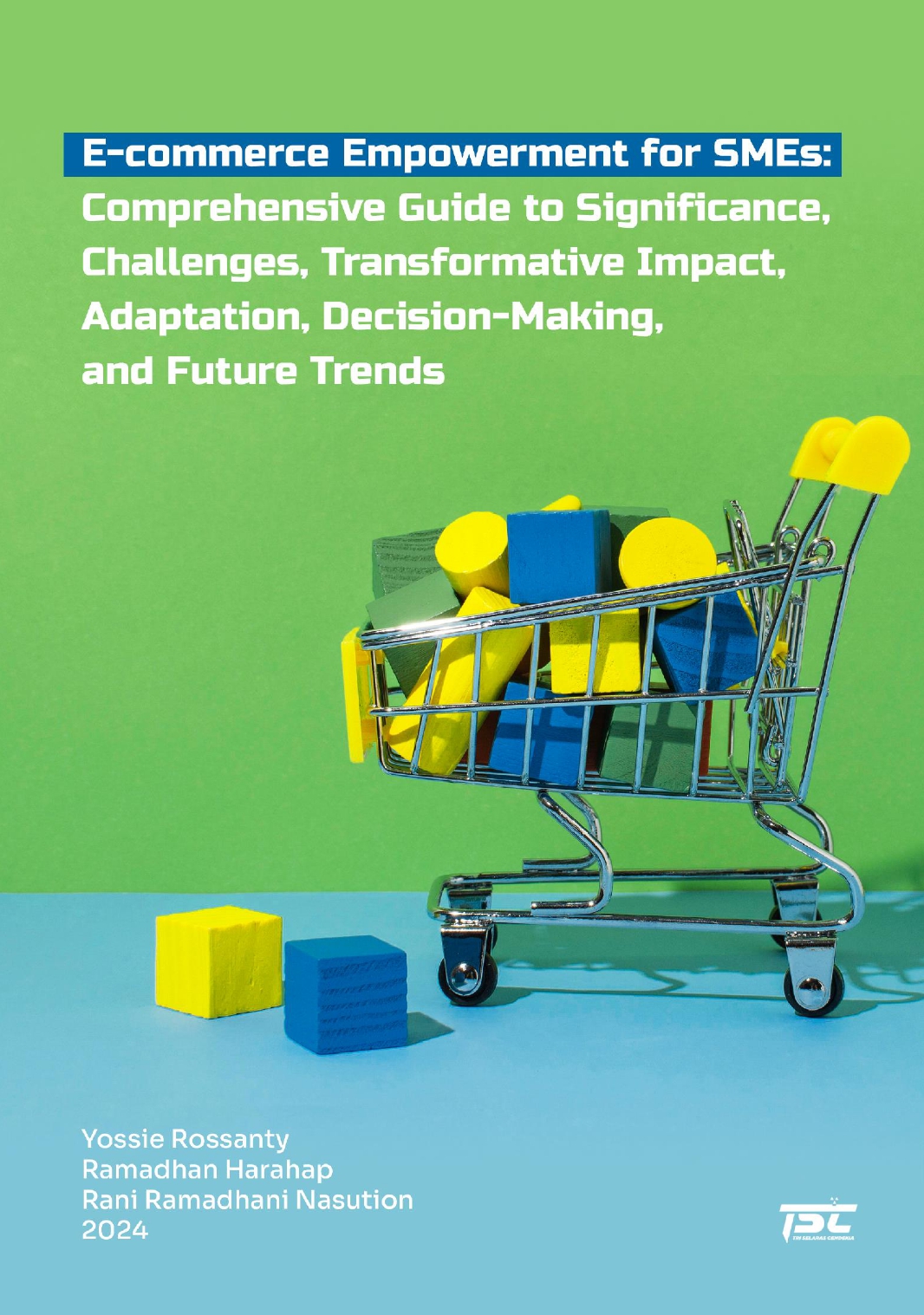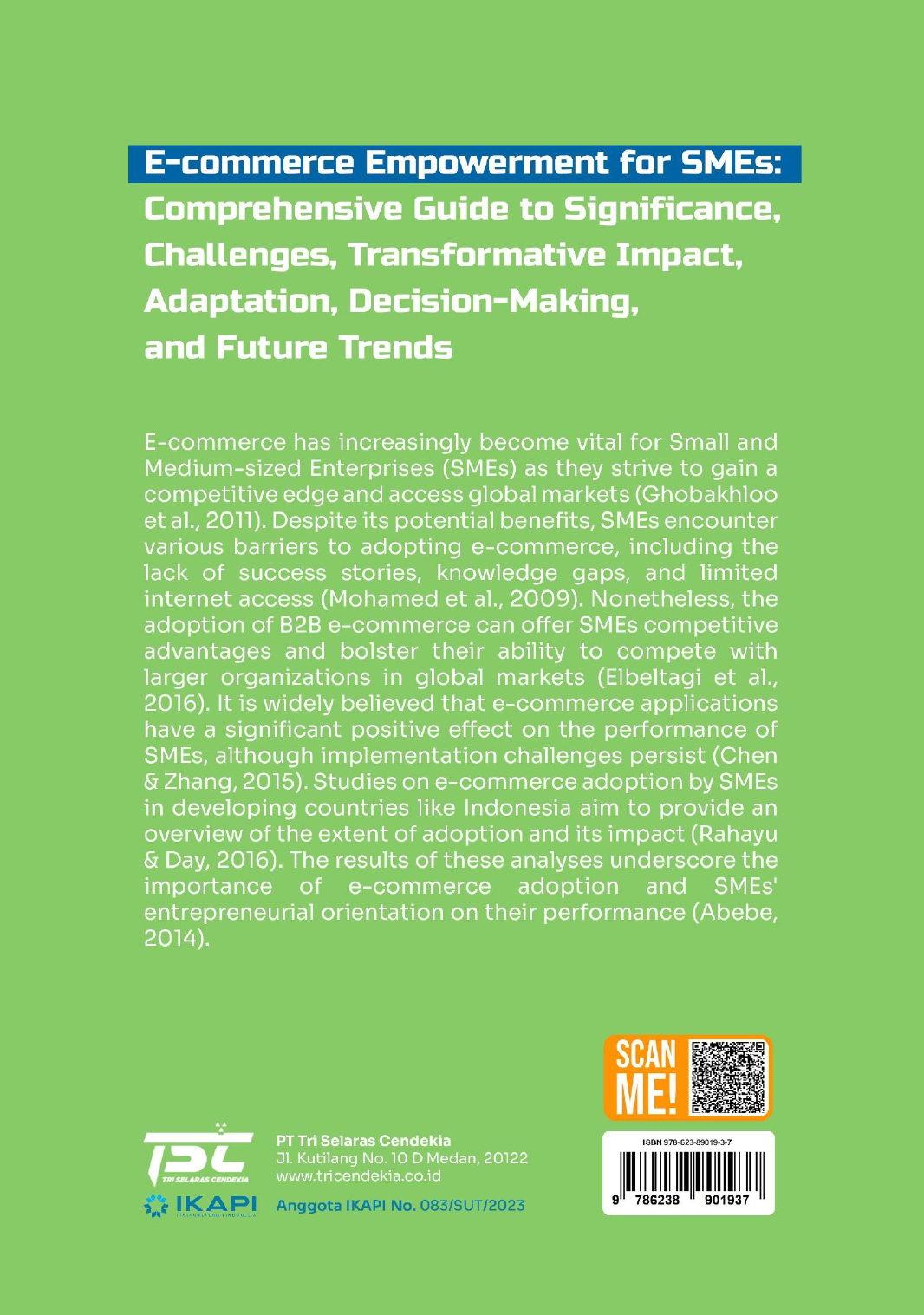

E-commerce Empowerment for SMEs: A Comprehensive Guide to Significance, Challenges, Transformative Impact, Adaptation, Decision Making, and Future Trends
Penulis
Ramadhan Harahap
Rani Ramadhani Nasution
Harga


Penulis
Harga
Temukan Ilmu dan Inspirasi Baru

Tri Selaras Cendekia (TSC) adalah penerbit terpercaya yang mendukung penulis dalam mewujudkan karya mereka menjadi buku berkualitas, melalui layanan penerbitan profesional, dari penyuntingan hingga pendaftaran ISBN.
Kritik/Saran Pelayanan : 0812 - 8620 - 2323
Tri Selaras Cendekia
© Copyright – Tri Selaras Cendekia By Utama Jaya Group 2024. All rights reserved.